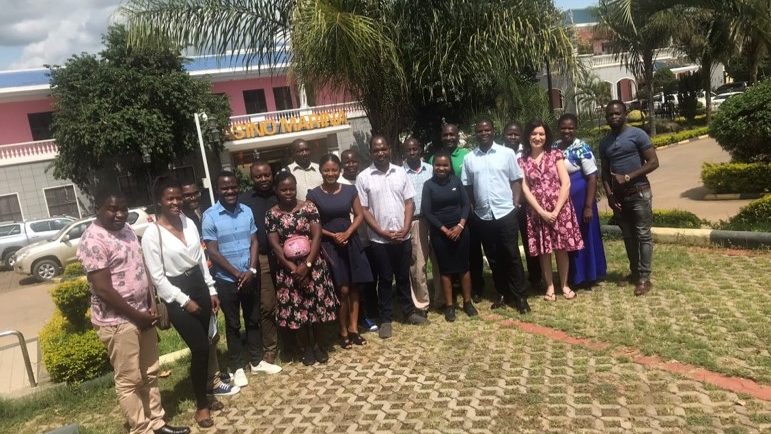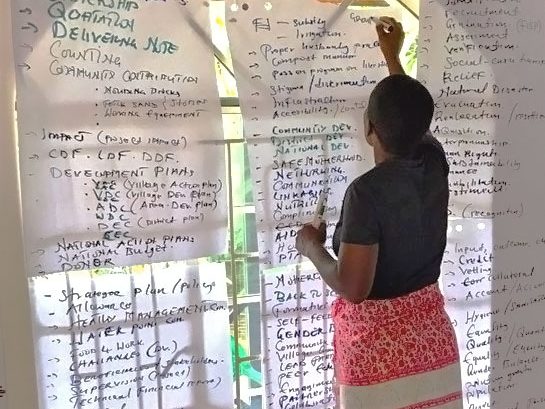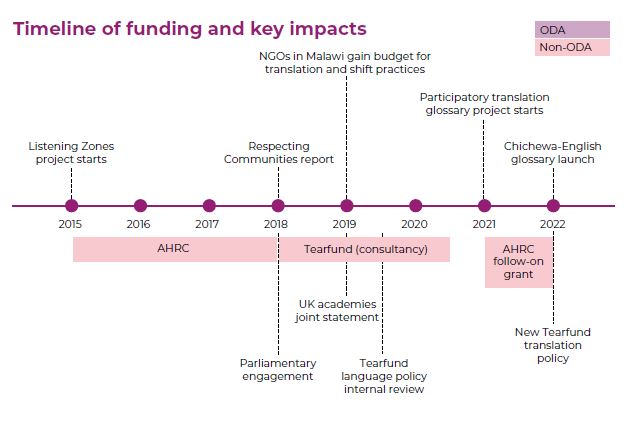How embracing inclusive communication approaches improved development initiatives in Malawi, Peru, and the UK
| Leading University | University of Portsmouth |
| Location of impact | Malawi, Peru, UK |
| Thematic focus | Area studies |
| Funders | In the UK: Arts and Humanities Research Council (AHRC) |
| Partners | In the UK: Christian Aid, Intrac, Oxfam GB, Save the Children, Tearfund, University of Reading |
Case study summary
Although development projects often take place in contexts with diverse cultures and languages, a lack of adequate language translation too often stops researchers connecting with local communities. Since 2015, the Listening Zones project sought to tackle this by exploring the role of language and cultural understanding in the policies and practices of NGOs working in international development.
This research emerged from a collaboration between the Universities of Portsmouth and Reading and the International NGO Training and Research Centre (Intrac). It led to the production of the Respecting Communities report which provides practical recommendations for policymakers and practitioners on language translation, including for: grant applications, project planning, and budgets. In Malawi, NGOs that collaborated on the report put its recommendations into action. This increased community participation and helped find better solutions for addressing local problems. In the UK, the report influenced a fundamental call from national academies to embrace more inclusive language strategies. It also transformed the translation policy of British NGO Tearfund which inspired other NGOs to follow their lead.

Primary benefits in Malawi and Peru
Increased funding for translation practices
Donors of the NGO Catholic Commission for Justice and Peace, working in Malawi, were inspired by the results of the Listening Zones research and the Respecting Communities report. They subsequently allocated funding for the translation of the NGO’s project materials on health education to local languages, leading to better community engagement. The Peruvian NGO Kusi Warma also adopted recommendations of the report.
Improved standard practice of NGOs
Following the report, the Malawian-based NGO Trocaire translated its organisational training materials. Volunteers at Trocaire positively responded to this new approach as it facilitated grasping development-related concepts and enabled culturally sensitive discussions (e.g., gender equality). The NGO expanded material translation to other LMIC locations among the 17 they operate in.
Building relationships between the local community and NGOs
Researchers, NGO staff and the local people of Lilongwe and Zomba (Malawi) collaborated using AHRC follow-on funding to develop the Chichewa-English Glossary for Development Work. It explains development and NGO terms (e.g., social exclusion, empowerment) that can create confusion. Building and implementing this practical tool helped build stronger NGO-community relations.
Impact on data sharing and understanding
The glossary was used by the Malawi Sexual and Reproductive Health Rights Alliance to develop all guides, questionnaires, and group discussions in Chichewa. This improved data quality and the understanding of the Alliance’s key messages. Materials will also be translated into minority languages, such as Sena and Yao.


Secondary benefits for the UK and globally
Professional training and development
The ‘Listening Zones’ research raised awareness about the power of language in development work. It encouraged UK researchers, NGOs, and funders to move away from English-centric communication (e.g., allow project proposals in other languages) to improve the quality of development initiatives and ensure they are inclusive and effective for the communities they serve.
Pushing policy toward equitability
Tearfund revised translation policy and integrated it to the organisation’s diversity and inclusion agenda, potentially affecting staff practice across the 50 countries in which they operate. Among other initiatives, this included developing a culture of multilingualism and extending translation beyond ‘core’ languages (English, French, Portuguese, Spanish) As a result, Tearfund staff can access best practice resources to inform their community work in local languages. Other UK-based NGOs have also started to acknowledge the crucial role of translation in development practices.
Influence on legislation and policy
Recommendations from the Respecting Communities report were shared in a high-profile parliamentary group in 2018 and included a joint national academies statement in 2019 calling for the UK government to adopt a language strategy for better international development professional practices.
How secondary benefits unfolded
- The Listening Zones research team focused strongly on achieving real-life impact and creating equitable partnerships. Direct input from NGOs working in Malawi and Peru, along with an active advisory board, helped the research findings move from theory to practice and influenced both LMIC-based and UK-based NGOs.
- Tearfund’s involvement in the advisory board for the Listening Zones project prompted them to conduct an internal review of their organisational language policy. This, in turn, resulted in an improved policy.
- Insights from the Respecting Communities report – along with Tearfund’s positive experience regarding its new translation policy – informed Amnesty International and Save the Children’s revision of their language policies. As a result, the importance of translation to the inclusivity and localisation agenda is gaining greater recognition.

